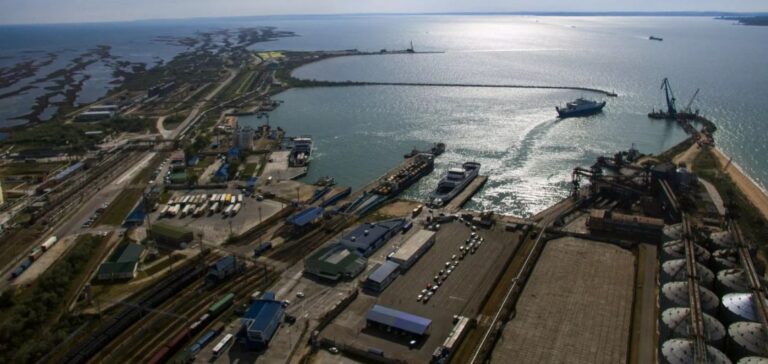Ukraine stepped up its targeted strikes on Russian energy infrastructure, notably sinking a ferry loaded with 30 fuel tankers at the port of Kavkaz on August 22.
This site, located on the Kerch Strait, is crucial to Russia’s exports of fuel oil and oil residues.
These strikes are part of a series of attacks carried out since May, aimed at weakening Russia’s energy logistics capabilities.
The port of Kavkaz is an essential link in the Russian energy supply chain, with an export capacity of around 110,000 barrels a day.
The impact of these attacks could seriously compromise the continuity of oil flows, particularly to European and Asian markets.
Nearby floating storage facilities, which play a key role in managing stocks of products delivered by river, are also exposed to new threats.
Increased risks for energy investments in Russia
Ukrainian strikes on Russia’s strategic infrastructure pose a major challenge for investors in the energy sector.
Growing insecurity around critical facilities, such as the port of Kavkaz, is forcing market players to reassess the risks associated with their investments in Russia.
The current geopolitical context, combined with these security risks, further complicates the investment environment, prompting increased caution among companies in the sector.
Energy operators must now factor these new threats into their investment and risk management strategies.
The destruction of key infrastructure not only reduces Russia’s ability to export oil products, but also increases market volatility, with potential repercussions on the price of fuel oil and other refined products.
Against this backdrop, infrastructure resilience becomes a priority to ensure the stability of energy flows.
Impacts on the global petroleum products market
Potential disruptions to Russian oil product exports due to the Ukrainian attacks are likely to disrupt world markets.
Industry players need to anticipate a possible reduction in fuel oil supplies, which could influence prices in the short term.
The redirection of trade flows towards other sources of supply could also lead to adjustments in global supply chains.
Recent events highlight the vulnerability of energy infrastructures in times of conflict, even those located far from direct combat zones.
Companies involved in trading petroleum products, as well as risk managers, will need to continue monitoring the situation closely to adjust their strategies in line with developments on the ground.






















